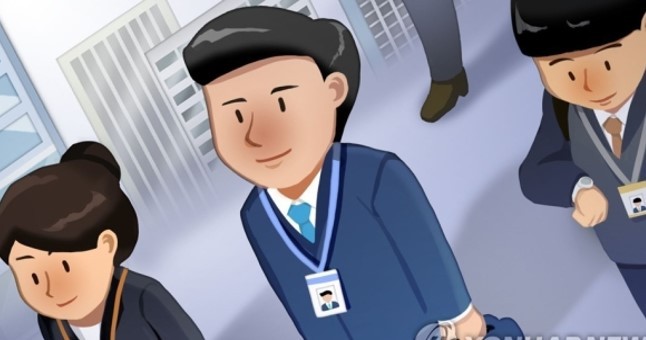Old or young, most workers feel generation gap: survey
‘Older workers feel wider generation gap, but younger employees feel greater difficulty’
By Shin Ji-hyePublished : April 8, 2020 - 13:51

Six out of 10 South Korean workers experience a generation gap in their workplace with the older generation feeling wider disparity, a report showed Wednesday.
The Korea Chamber of Commerce &Industry released a survey of the generation conflict in Korean companies among around 13,000 office workers from 30 large and midsized companies.
The survey showed 63.9 percent of the respondents feel the generation gap.
By age, 69.4 percent of those in their 40s and 67.3 percent of those in their 50s said they felt a generation gap with their peers. Around 52.9 percent in their 20s and 62.7 percent of those in their 30s felt the same way, indicating that the older generation felt a greater difference.
On whether the generation gap negatively affects work, 41.3 percent of those in their 20s and 52.3 percent of those in their 30s said “yes,” compared to 38.3 percent and 30.7 percent of those in their 40s and 50s, respectively.
“The difficulties due to the generation gap are concentrated in the lower ranks due to the vertical working style and communication practices,” the KCCI said.
“While the older generation may consider it as a simple generation gap, the youth can take it seriously as a generational conflict.”
Regarding “overtime is inevitable for performance,” 35.5 percent and 42.8 percent of those in their 40s and 50s, respectively, responded positively. On the other hand, only 26.9 percent and 27.2 percent of those in their 20s and in their 30s were positive, showing a difference. This is because the older generation thinks of work as duty-oriented while the younger people value their rights and working hours in the labor contract, according to the KCCI.
According to the survey, people in their 40s and 50s, as well as those in their 20s and 30s, generally agreed on the need for “team building activities.” But, everyone were found to have low satisfaction in having dinner outings together.
The older generation said, “a company dinner is like a meeting between the families of the bride and the bridegroom, so it’s not fun, but it’s necessary for communication.” The younger respondents said, dinner is “a continuity of protocol” and communication is enough in the working hours.
The report suggested that to overcome generational conflicts, organizations should be improved from “family-like” environment to “pro-team-like.” This means that when a player bats for the team, the team gives players what they want.
“If the organization’s goal is to become a professional, the leader will try to have the same skills as a professional team coach, and subordinates will be recognized for their contributions to the team as a professional player,” said Park Joon, a manager of KCCI’s corporate culture team.
By Shin Ji-hye (shinjh@heraldcorp.com)



















![[Today’s K-pop] Treasure to publish magazine for debut anniversary](http://res.heraldm.com/phpwas/restmb_idxmake.php?idx=642&simg=/content/image/2024/07/26/20240726050551_0.jpg&u=)